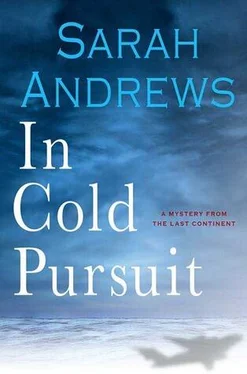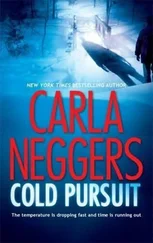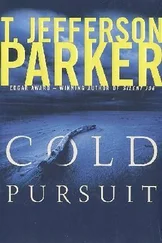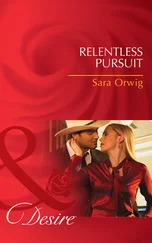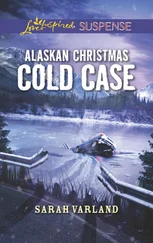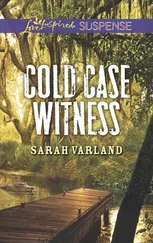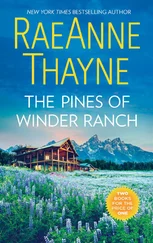At the same time, Michael dug a tunnel into the wind-packed snow on the downwind side of the hut, under the wall, and up inside it, leaving as much of the floor as possible intact as a platform for sleeping bags. When they were done, there was room for exactly three.
“Snug as a bug in a rug,” said Michael.
Valena smiled. “I’m going to call it home.” She rolled out the two layers of thick neoprene and the enormous sleeping bag that the instructors issued to her, choosing the middle space so that if she rolled over in her sleep, she wouldn’t kiss the frozen wall.
The wind had picked up while they were finishing the inside of the quinzy, but she could not hear so much as a whisper while inside. In fact, the only sounds she heard were her own breathing and the sounds of people walking around in the cold snow outside. It’s less than ten degrees out , she reckoned, recalling how cold it had to get back home before the snow squeaked like that. She was glad that she had chosen the quinzy. It would keep her warmer than a tent.
Most of the other Happy Campers pitched tents. Some pitched two-man mountain dome tents, but Manny also issued them two Scott tents, which were tall, teepee-shaped rigs designed in the early days of Antarctic exploration. “You can stand up in a Scott tent,” he said, explaining its virtues, “and two or three of you can sleep comfortably on its floor, but given that the fabric’s heavy and the poles are not collapsible, the style would be useless anywhere sledges or helicopters were not available to assist transport. They are, however, stable in a high wind.” He demonstrated the fine art of pitching the tent, first laying it out on its side with its top pointing into the wind, then hoisting it up and downwind using two of the guylines. A wide skirt around the base was then laden with snow to prevent the wind from turning it into a parachute, and the ends of the guylines were wrapped around bamboo sticks and buried a foot down into the snow.
The snow fascinated Valena. She had grown up in Colorado and Utah, where snow was usually light and fluffy unless it was allowed to sit around city curbs too long, in which case a few cycles of freezing and thawing turned it to ice and slush. This snow had a completely different quality, being born colder and kept frozen. The wind packed it into slabs, which Dustin now demonstrated could be quarried into blocks. This they did, piling them three courses high to form a wall that surrounded the little city of dome tents, connecting the Scott tents to the quinzy. When they had started to build it, Valena had thought it a mere exercise in survival training, but now she realized that it would provide a serious and important part of their comfort in the coming hours as the wind was gusting up to twenty knots now.
It was getting on toward the end of the afternoon, and Minna Bluff had long since disappeared entirely. Two of the firemen had gotten one of the little bivouac stoves going inside the Scott tent, so Valena joined them by climbing in through the sphincter of fabric that formed its airlock and availed herself of a cup of instant hot chocolate. Its warmth was welcome and the sugar hit her like a bomb. Settling herself on the small wooden crate in which the instant drinks had been packed, she allowed herself a short break.
One of the firemen said, “I don’t know about that Dustin fella. He has the latest outdoor gear, but I think he’s more show than go.”
The other said, “Manny’s okay, though. He’s had a lot of experience down here. He’s been a mountaineer other seasons.”
“Yeah, so why’s he teaching Happy Camp instead of getting the hell out of Dodge?”
“I hear he was out at this high elevation camp last year when somebody died of altitude sickness. It wasn’t good.”
Valena jumped into the conversation. “Really?” she said. “Do you mean Emmett Vanderzee’s camp?”
The man nodded. “Mm-hm. First time they’ve lost someone in years.”
So Manny is Manuel Roig, one of the people Ted told me were in camp with Vanderzee when the reporter died! Quickly she got up and wiggled back out through the airlock in search of the instructor.
Outside, the wind had increased another five knots and low clouds were beginning to press downward into the scene. Manny and Dustin were in the center of the corral, waving people together for a chat.
“Okay, you’re on your own,” Manny informed them, crouched down into the lee of the snow-block wall. “Dustin and I are going over to the instructor’s hut for the night. You’ve got shelter, food, water, and a latrine. Do not, I repeat, do not leave the flag route while transiting to the latrine. As you can see, we are no longer in condition 3. This is getting toward condition 2. If it gets down to condition 1—if you can’t see the flags—do not go to the latrine, you’re bound to get disoriented and lost. Everybody understand?”
“What do we do if we can’t get there?” someone asked, provoking a smattering of nervous laughter.
“Well, then you get creative,” said Manny. “Bottom line, if you have to choose between peeing your pants and risking your life, what would you do? Okay, so Dustin and I are just half a mile down the road in the I-hut. Doris here has a radio, so anyone needs us, just call. See you at nine tomorrow morning for the next part of training. Have your stomachs full, the tents down and your sleep kits packed. Sleep well!” And off he went, with the redoubtable Dustin trudging along behind him.
Valena huddled down behind the snow-block wall and tried to reason out what to do next. On the face of it, there was very little that she could do except prepare something to eat and then climb into her sleeping bag inside the quinzy so that she could stay warm, the better to survive the night. The idea had strong appeal. She was jet-lagged, short on sleep, and now physically exhausted from shoveling snow. Sleep was the cure for all, and then she would be ready to question Manny when “morning”—that period of slightly brighter light that came after the period of slightly less bright light—arrived.
But first, she had to eat. She headed into the Scott tent and dug around through the food box, hoping for something palatable. There was nothing there but freeze-dried instant backpacker’s dinners, granola bars, and chocolate bars. Black Bart chili with beans sounded like a bad idea in the tight confines of the quinzy, so she chose a packet that claimed to produce beef stroganoff. Following the lead of others around her, she tore open the top of the bag, ladled in a cup or so of boiling water, zipped the bag shut, and stuffed it inside her parka to keep it from growing cold before the contents rehydrated enough to become edible. She then located an eating implement—a sort of spoon with teeth—and headed back outside to again huddle inside the wall.
In the time it had taken her to get dinner, the world beyond the small grouping of tents had narrowed to a soft bluish gray, the sky and the surface of the snow-covered ice all one tone with the faintest darker line marking the seam between them. In this soothingly minimal environment, she took a moment to try to sort through her feelings. Ever since the shock that had awaited her arrival, she had been obsessed with disappointment and her determination to avoid being sent home. Oppressive cold with little shelter brought both exhilaration and a sense of desperation to her mood. She wrapped her arms around herself and squeezed the foil packet of food closer to her chest, holding it to her heart. Surely there was a solution.
Another human swollen with red parka and black wind pants shuffled to her side and sat down. The parka hood turned her way, revealing a pair of goggles, a rime of ice-encrusted beard, and the tip of a very red nose. The ice crimped briefly into a smile, then split horizontally, revealing a mouth. “Hi,” the man said. “You’re Valena, eh? Emmett’s student?”
Читать дальше
